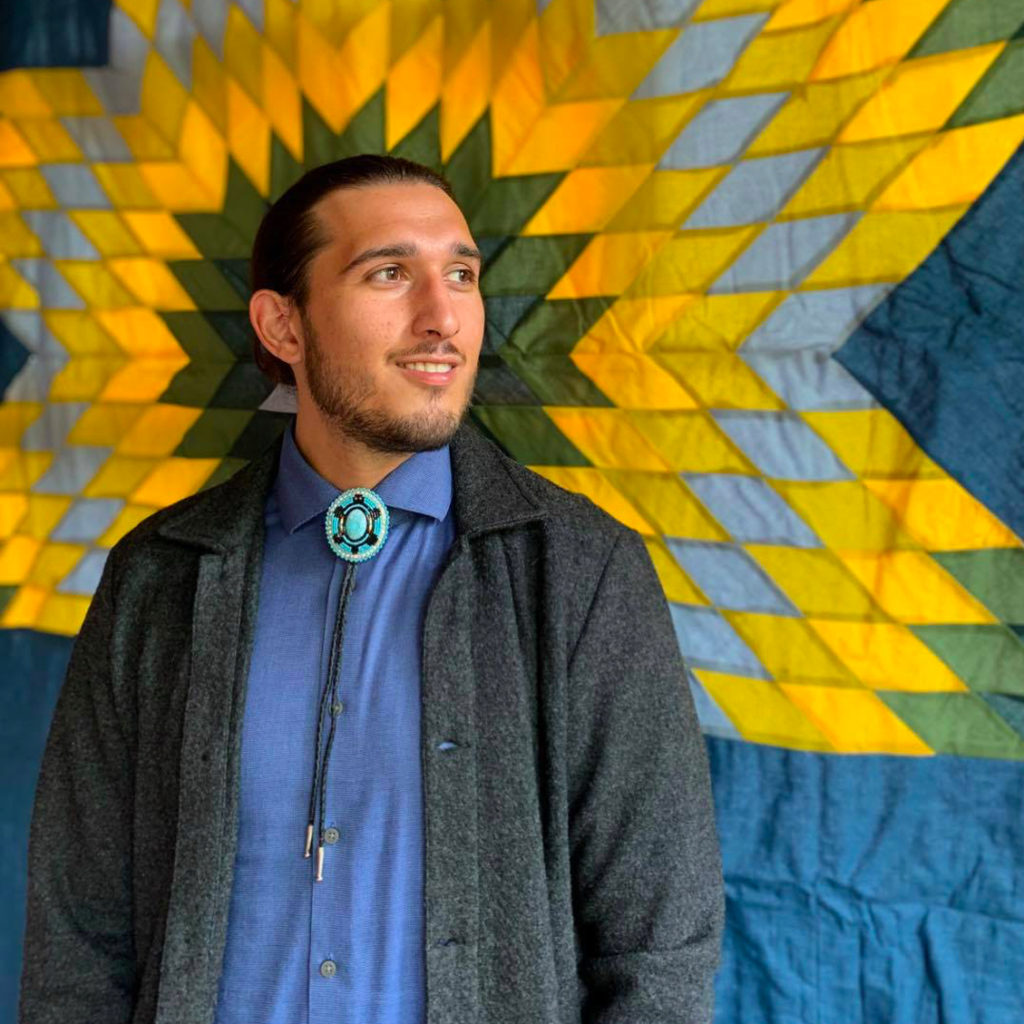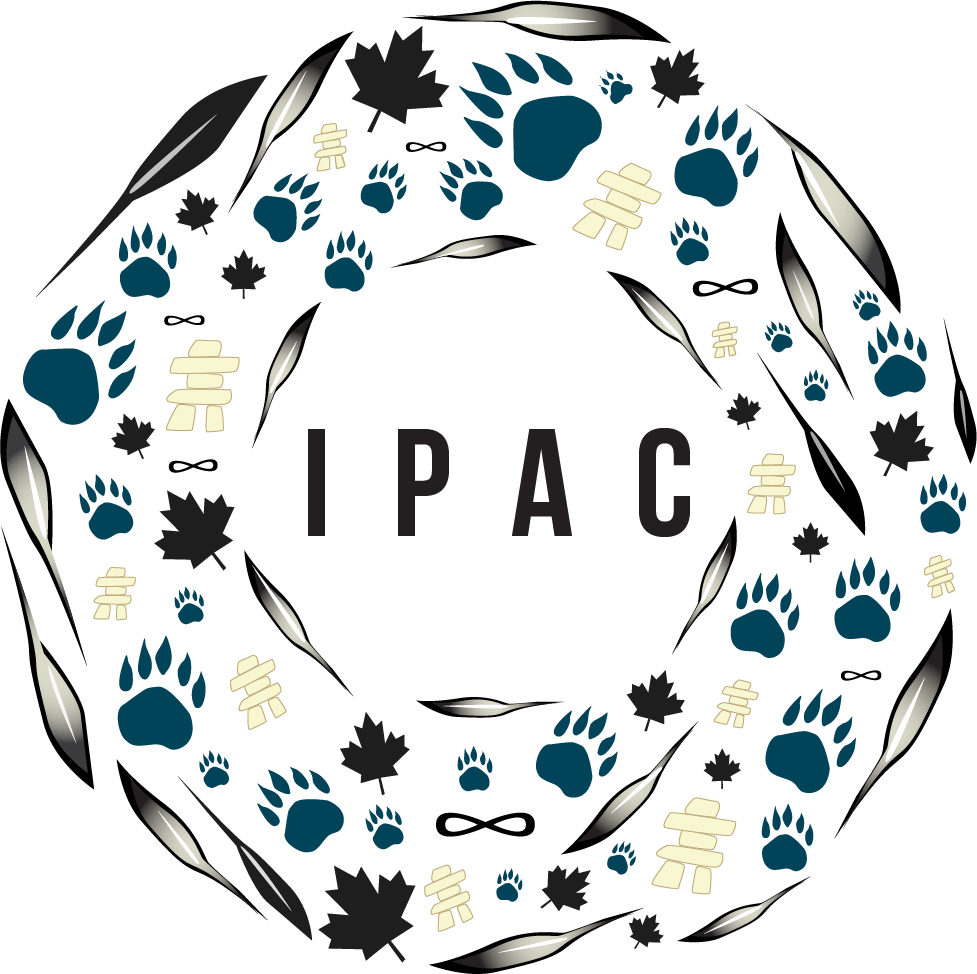RECOGNIZING EXCELLENCE NOAH WILSON

Noah Wilson
My Name is Noah Wilson and I am a Nehiyaw (Cree) man with French/Ukrainian heritage on my mother’s side of the family. I am a proud community member of Peguis First Nation which is the largest Treaty 1(1871) community located in the province of Manitoba but am currently located in Winnipeg, Manitoba.
I am the Business Development Manager for Indigenous Young Entrepreneurs for Manitoba and Saskatchewan @ Futurpreneur Canada. It’s my privilege to be apart of an all-Indigenous Business Development Manager team who are mandated to help Indigenous Young Entrepreneurs develop viable business plans and cash-flow projections to gain access up to $60,000 in working capital to launch an Indigenous Start-up or $15,000 for an Indigenous Side hustle with a mentor for 2 years! We also work to help Indigenous Entrepreneurs navigate the Indigenous Business Development ecosystem for additional resources and funding supports.
I am also the new co-chair for the Truth and Reconciliation Advisory Council for the Winnipeg Chamber of Commerce and am working towards reinforce the Chamber and the business community’s commitment to the Calls to Action and the relationship that includes the First Nation, Metis, and Inuit communities.
What sparked your interest to work in this industry?
As a result of living in several cities and communities throughout my youth, I was able to see a diverse cross-section of Canadian society that highlighted the stark discrepancies in the standard of living between First Nations peoples and the rest of Canada. These experiences fostered my passion to someday become a trusted adviser for the resurgence of self-determining Indigenous economies, thriving Indigenous communities, and a hopeful Indigenous people. I recently graduated with distinction from the University of Manitoba in 2019 with an Advanced-Bachelor’s degree in Indigenous Governance and a Minor in Management which only continued to grow his passion for Indigenous business, Indigenous economics, and Indigenous self-governance.
What do you enjoy most about your profession?
I find it incredibly fulfilling and exciting to use my educational and professional background to help support the many Indigenous Young Entrepreneurs across Manitoba and Saskatchewan who are just waiting for an opportunity to bring their great business ideas to life for the resurgence of self-determining Indigenous Economies
What educational preparation would you recommend for someone who wants to advance in this field?
As I mentioned before, I graduated from University of Manitoba with a Advanced-Bachelor’s degree in Indigenous Governance and a Minor in Management. It’s important to have a understanding of the diverse history amongst First Nation, Metis, and Inuit communities across Canada with an understanding that there is no pan-Indigenous solution for Indigenous governance, Indigenous economics, or Indigenous business. It’s also important to start building your knowledge base in business and management topics to become comfortable with the terminology and at least have a basic understanding of accounting and corporate finance.
I believe it’s important to get involved in extra-curricular activities, as I was able to build a strong network of mentors and connections when I decided to run for a position in University of Manitoba Indigenous Students Association as I has opened doors for me to get internships and opportunities I had only dreamed of getting before.
What does success look like to you for Indigenous youth?
I believe that the framework that Indigenous Youth should be determining their success should be grounded in Indigenous ways of knowing. For too long, Indigenous Youth have been asked to gauge their success based on Western epistemologies but when I see Indigenous youth reclaiming their language, their historical and cultural roots, and their identity as a First Nations, Metis, or Inuit person within Traditional frameworks of knowledge….that is what success looks like to me. Our youth are bringing innovation and important Indigenous epistemologies into Western frameworks that will bring positive changes to both our Indigenous communities and the rest of the Turtle Island.
How has a failure, or apparent failure, set you up for later success?
In 2019, I was shortlisted by the University of Manitoba to apply for the Rhodes Scholarship and went through an extremely rigorous application process. This is one of the most competitive scholarships in the world and I applied to research ways of dismantling the Indian Act (1876) at Oxford University to help lead a new era of reconciliation in Canada: one that is characterized by self-governing Indigenous peoples who have the self-determining autonomy to control their socio-economic destinies through environmentally sustainable development. After several months of preparation and rounds of review…I was told that I was a 2019 Rhodes Scholar Finalist and was selected for the final interviews amongst 10 other candidates across Manitoba, Saskatchewan, and Alberta. After months of self-doubt, I finally believe I might have a chance to go to the University of Oxford but unfortunately, I wasn’t selected, and it felt like a huge opportunity missed.
Ultimately, this “apparent failure” allowed me to focus on my local community and I began pursuing a career in Indigenous economic and business development. In that period thereafter, I received two promotions while working at RBC and was ultimately landed the role I am in today. I am so glad I went through that process because I am never going to look back and think “what if”. In addition, it allowed me to really reflect on what I really want to do with my life and how important it is to build strong connections/networks with mentors, leaders, and colleagues in my community which has no doubt led to my current successes.
What are one to three books that have greatly influenced your life?
- Unsettling Canada: A National Wake-up Call by Arthur Manuel
- The Fourth World: An Indian Reality by George Manuel
- Why We Can’t Wait by Martin Luther King, Jr.
Do you volunteer? If so, where and why is that important to you?
Yes, I am the Co-chair of the Truth and Reconciliation Advisory Council for the Winnipeg Chamber of Commerce. This is very important to me as I see myself as a devoted advocate for the implementation of the Truth and Reconciliation Commission’s 94 Calls to Action in Canada and the establishment of the United Nations Declaration on the Rights of Indigenous Peoples (UNDRIP).
I also coached football at my Alma Mater high school prior to COVID-19 putting a halt on the season. I believe sports is so important for personal and community development and love fostering a passion for football in youth as I believe it’s the ultimate team sport.
In the last year, what new belief, behavior, or habit has most improved your life?
The global pandemic has been extremely difficult on all of us, and I have had to form strategies to cope with the additional stresses we have all been facing! I never truly new the value of mediation and going for daily walks prior to this year. One of the strongest new forms of mediation I have been doing has been journaling my thoughts, work, and future goals. Learning to live intentionally and in-the-moment is more difficult than every with technology, so I have been trying to meditate on being in the present moment and have gratitude for both life’s blessings and challenges. I’ve had meditation routines on and off but try not to get too hard on myself if I get off track.
What are some challenges you think the next Indigenous generation will face in your industry/profession?
Providing access to capital, helping to build strong credit histories, and creating strong asset bases for Indigenous communities and individuals is the challenge now and will be the challenge that the next Indigenous generation will have to face as well. The Truth and Reconciliation commission has taught me that for as long as these systemic barriers have been in place, it will take at least as long to correct these injustices, but I have faith that we are moving in the right direction not only as Indigenous Peoples but non-Indigenous Peoples as well.
What advice would you give to a smart, driven student about to enter the “real world”? What advice should they ignore?
Find a strong tribe of mentors and maintain relationships with your biggest supporters as they will be your biggest advocates for your future success as you enter the “real world”. There is a well-known saying that says “show me your circle of friends and I’ll show you your future”, and this is something I strongly believe in. Having a diverse friend group and tribe of mentors from different communities, generations, professional backgrounds, and networks can provide you with opportunities and solutions you never thought possible.
In terms of advice you should ignore, is any advice that someone is giving that guarantees a particular future outcome. Everyone has different lived experiences and pathways to success, so I think it’s more important to have a diverse set of perspectives than it is to focus on any one piece of advice. Every piece of advice may have some truth to it, but it’s always important to think critically and understand how it may or may not apply to you.

